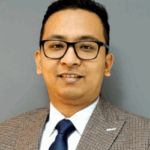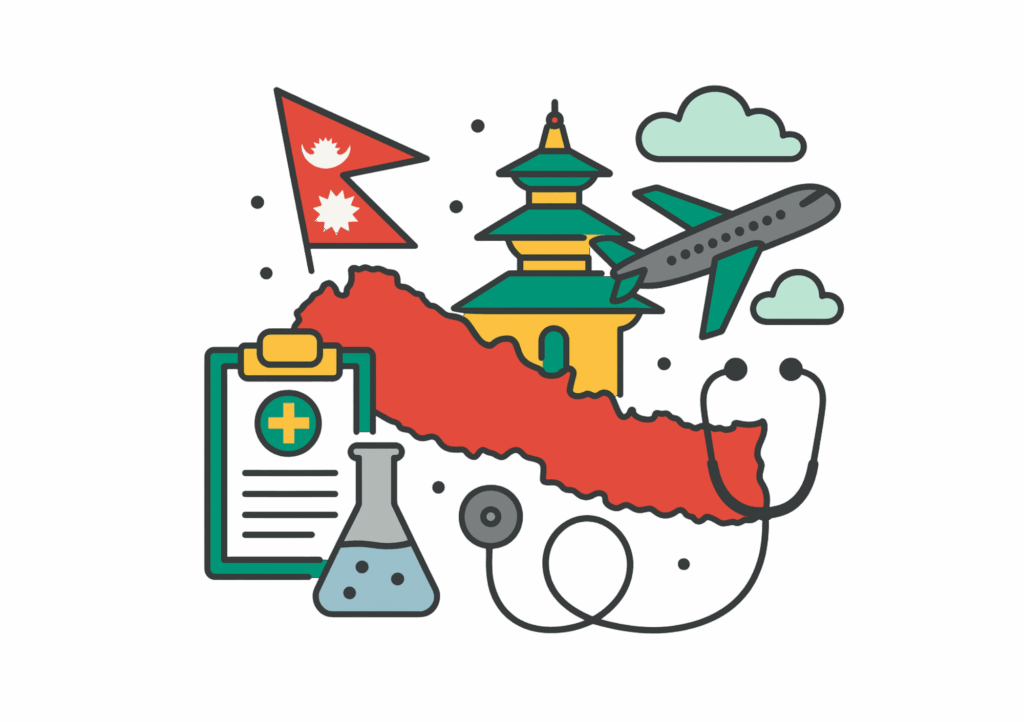From Nepal to Global Clinical Research: Honouring Heritage and Shaping the Future
Posted on: Friday 8 August 2025
Author: Ashish Shrestha

This month (18 July to 17 August 2025) marks the UK’s South Asian Heritage Month: a time to learn about, take pride in, and celebrate the rich history, culture, and contributions of South Asian people across the globe. As it does for me, and many others, it’s also a time to reflect on the importance of heritage in my professional life, from Nepal, which is considered a least developed country (LDC) by the UN, to a leadership role in a global clinical trial organisation, and continue advocating for better representation, equity and diversity in ways.
Through my work in clinical research, as I realise the vital role of representation and inclusivity in healthcare and drug development, to say the least, this month makes me remember and recognise the stories and perspectives that shape us, both as individuals and as members of society.

It was around the mid-2000s, driven by a passion to heal and serve, that I sought better education and set out to study medicine in Bangladesh, completing my MBBS at Jalalabad Ragib-Rabeya Medical College (affiliated with the Shahjalal University of Science and Technology (SUST)). I then worked in Bangladesh, Nepal and the Philippines. These experiences exposed me to the challenges of practising medicine in resource-limited settings, from healthcare infrastructure constraints to the ethical dilemmas of delivering care in fragile systems.
These formative years helped build resilience and adaptability in me, transforming my younger self into a responsible adult. It also instilled a strong sense of purpose to help make medicines work better, whether through a more effective clinical approach or improved clinical trials. They also provided first-hand insight into the gaps and potential of clinical research within South Asia, a region home to nearly a quarter of the world’s population.
Transitioning to the UK via the Professional and Linguistic Assessments Board (PLAB) route marked a new chapter. I started in front-line NHS roles as a junior doctor and served as a Disability Assessor, which helped me understand how everyone deserves a fair share. The pandemic taught me a strong lesson: outcomes are not always the same, no matter how hard we try, be it a new treatment or a century-old drug. However, we keep pushing and doing what we can from where we are, as every little matter counts. These experiences enriched my clinical expertise and understanding of healthcare systems and helped me appreciate the fact even more, that ailments won’t discriminate, neither should we.
Currently, based in the UK, I am the global lead for clinical trials at Bioluminux Clinical Research and have been working as a pharmaceutical physician for the last couple of years, where my responsibilities include protocol compliance, feasibility reporting, staff mentoring, and central oversight of Industry-sponsored late-phase studies that we conduct at our US and UK sites. With each passing day, I recall how each stage of my professional journey has shaped my perspective on the global pharmaceutical ecosystem, underscoring the importance of diverse experiences within it.
In recent times, as evident by the growing involvement, South Asia is increasingly contributing to global pharmaceutical development, opening more doors to clinical trials, manufacturing, and regulatory innovation. However, numerous challenges persist, including the underrepresentation of South Asian participants in global studies (I hardly see any Nepalese in most trials), inefficient research facilities, and the necessity to adopt more inclusive and adaptive methods.
Being a Southeast Asian myself, it brings me both a great sense of responsibility and opportunity. I feel this intense desire to mentor International Medical Graduates (IMGs) and allied health professionals, helping them feel how important each and every one is, no matter how culturally and regionally different they are, and do what I can to make them feel heard.
To give more life to this, I am proud to be part of the Faculty of Pharmaceutical Medicine’s EDI Forum, where like-minded professionals from different backgrounds work together towards the same bigger cause – to ensure representation, accessibility, and fairness, and I am sure the teamwork will make the current picture of clinical trials even more colourful – we all know that heritage is not just about the past, rather it’s more about how we shape the future. I aim to contribute to this, whatever little I can, and help strengthen research ecosystems and awareness in Asian countries like Nepal, where it’s still early days. Not just that, as a new parent, I now feel it’s important that children born to minority groups can see how well they are represented and how cultural heritage and leadership can coexist in harmony, helping them take pride in their identity and roots.
I encourage my peers in the pharmaceutical and clinical research industries to think about the benefits of diversity during this South Asian Heritage Month. By encompassing various experiences, we may come up with more effective science and eventually achieve better patient results across the world.
